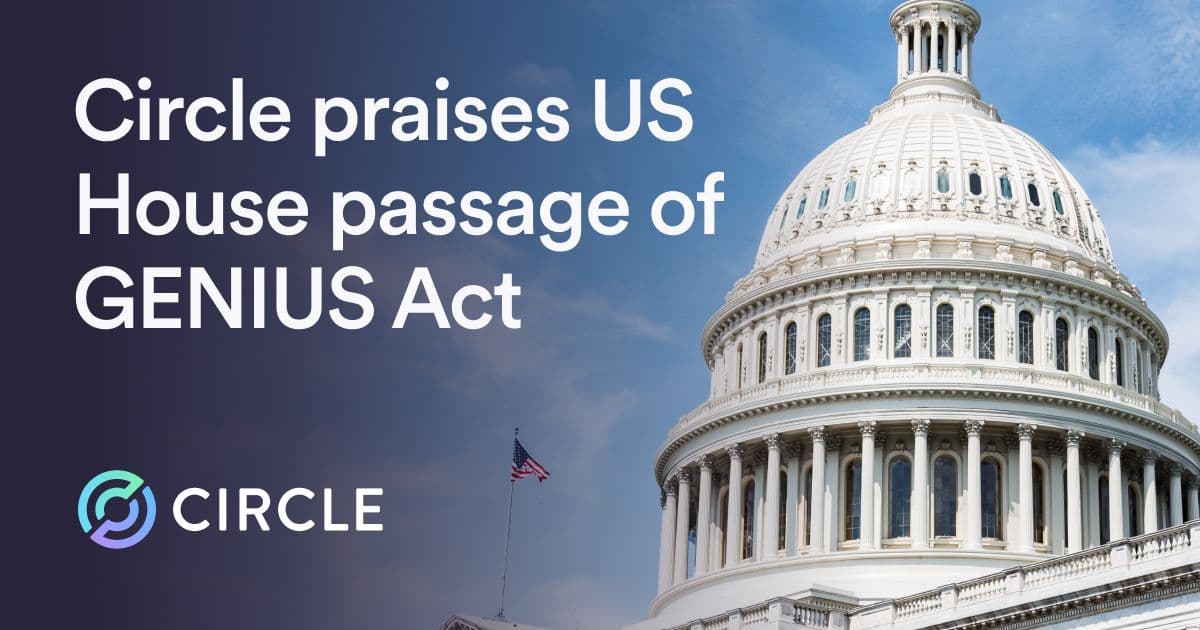U.S. Congress Advances Stablecoin Bill with 310-115 House Vote Amid Broader On-Chain Finance Push

Washington D.C. – The U.S. House of Representatives recently passed the "Clarity for Payment Stablecoins Act of 2025" by a significant margin of 310-115, marking a pivotal step towards establishing a comprehensive federal framework for stablecoin regulation. This legislative progress underscores a broader trend of increasing institutional and governmental engagement with blockchain technology and digital assets in the United States.
The proposed stablecoin legislation aims to mandate that issuers maintain one-to-one reserves in highly liquid assets and obtain federal or state licenses, according to Representative Patrick McHenry (R-NC), Chairman of the House Financial Services Committee. McHenry stated that this bill "provides the regulatory certainty necessary for stablecoins to flourish responsibly, integrating them into the broader financial system while safeguarding consumers." A similar bill is also advancing through the Senate Banking Committee with strong bipartisan support.
Concurrently, the Securities and Exchange Commission (SEC) is actively working to integrate blockchain into traditional finance under Chairman Paul Atkins' "Project Crypto" initiative. Chairman Atkins has emphasized that "decentralized finance and other forms of on-chain software systems will be part of our securities markets," indicating a shift towards modernizing regulations to accommodate digital assets. This aligns with President Trump's stated vision of making the U.S. the "crypto capital of the planet."
In a significant move towards tokenized securities, Nasdaq has filed a proposal with the SEC to allow the trading of tokenized versions of stocks and exchange-traded products on its main exchange. If approved, this initiative could see tokenized securities integrated into Nasdaq's regulated markets as early as Q3 2026, aiming to enhance efficiency and accelerate settlement times. Nasdaq's Senior Vice President of North American Markets, Chuck Mack, noted that tokenized securities would hold the "same material rights and privileges" as traditional ones.
Major financial technology companies are also deepening their involvement in the on-chain ecosystem. Payments giant Stripe recently launched a new fiat-to-crypto onramp for Web3 businesses, enabling customers to purchase over 100 cryptocurrencies directly within applications using traditional payment methods. This follows Stripe's re-entry into crypto payments in April 2025 with USDC stablecoin payouts, highlighting a growing commitment to bridging traditional finance with decentralized applications. BlackRock CEO Larry Fink has also publicly supported the tokenization of financial assets, viewing it as a crucial part of the financial markets' technological revolution.